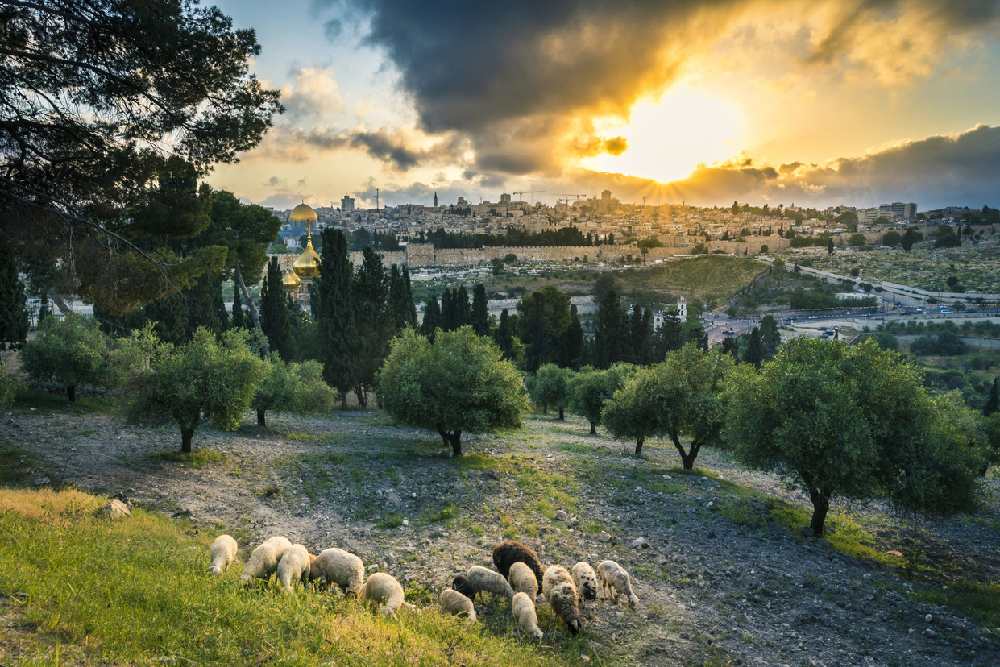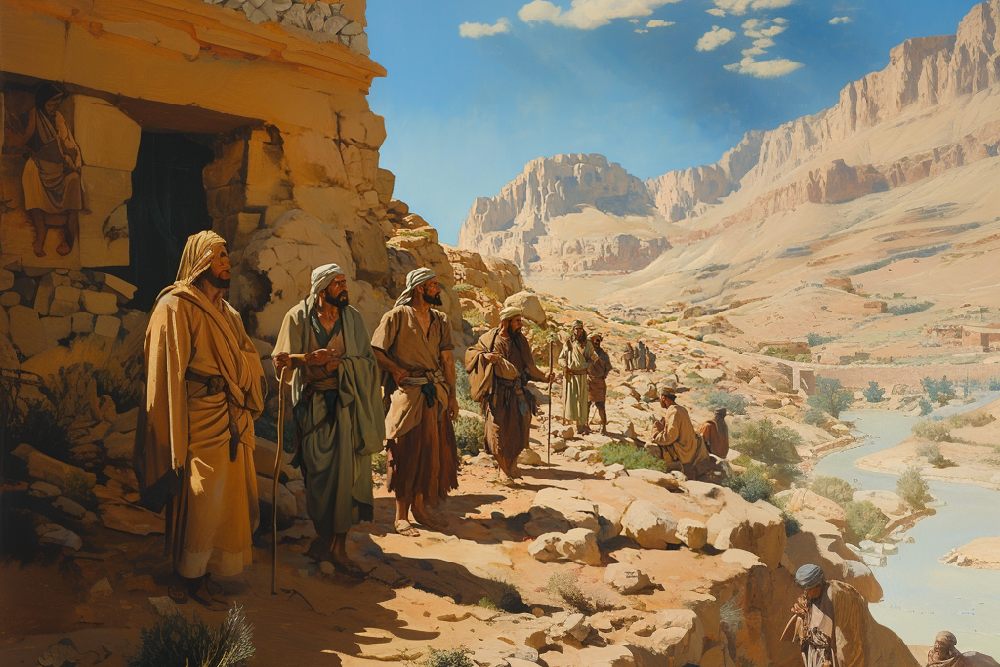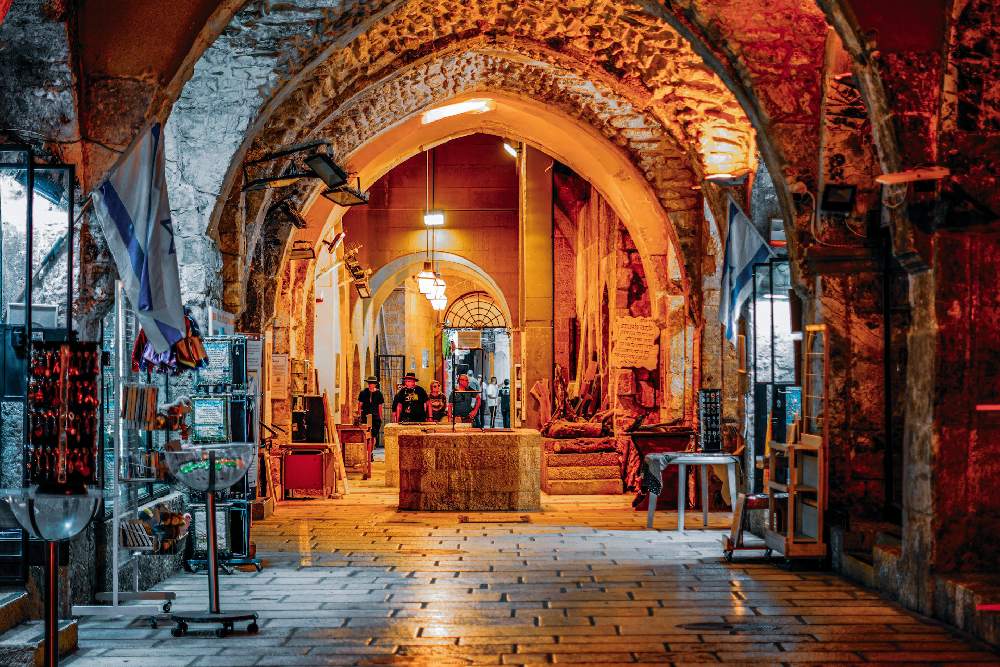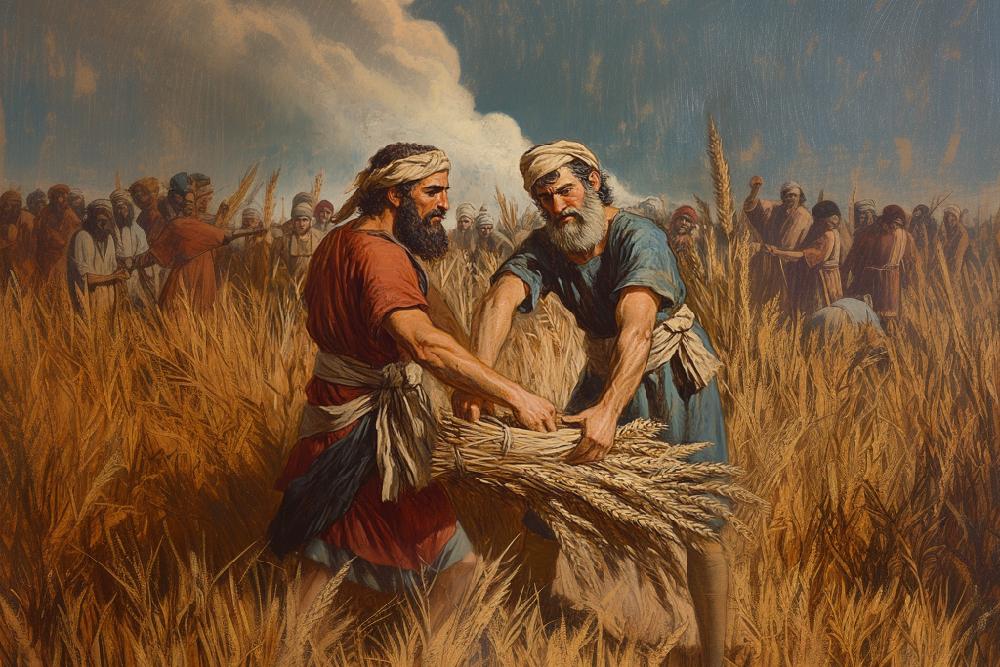
10 Best Wineries in Israel: A Wine Lover's Guide
Nestled between ancient hills and sun-drenched valleys, Israel's wine country is filled with fertile wineries that are producing world-class wines that are revolutionizing the global wine scene.
From the rocky Golan Heights to the rolling hills of Galilee and the limestone-rich slopes near Jerusalem, Israeli wineries are crafting vintages that blend millennia-old winemaking traditions with cutting-edge innovation, creating a nuanced wine experience.
What makes Israeli wineries appealing?
Ancient Roots: Israel has a long history of winemaking, dating back thousands of years. Archaeological evidence suggests that the region is one of the original places where people made wine.Cultural Heritage: Wine is deeply rooted in Israeli culture. It's more than just a drink; it's a part of social and ceremonial life. This rich history makes visiting Israeli wineries even more special.Diverse Terroir: Israel's diverse climate and landscapes contribute to its high-quality wines. Key wine regions like the Galilee, Judean Hills, and Negev Desert have limestone and volcanic soils, perfect for growing grapes. The Mediterranean climate, with its hot summers and mild winters, is ideal for many grape varieties.Innovative Agriculture: Israel is known for its agricultural innovations, including advanced irrigation techniques like drip irrigation. This technology helps vineyards flourish even in dry conditions, improving both yield and quality.Award-Winning Wines: In recent years, Israeli wines have gained international recognition, winning medals at prestigious competitions like the Decanter World Wine Awards.
» Read our Christian guide to experiencing summer in Israel
Our Picks for the 10 Best Israeli Wineries
1. Best for Stunning Views: Tabor Winery
If you're a nature lover, you'll appreciate the Tabor Winery's breathtaking views. Located in the Lower Galilee, its proximity to Mount Tabor adds historical and scenic value, where you can enjoy panoramic views while sampling world-class wines.
And the wines are some of the best in the world. They have earned international recognition, with the Adama Merlot winning a gold medal at the Terra Vino Competition. On the other hand, you have the Adama Sauvignon Blanc, with its crisp acidity and mineral notes that come from the volcanic soil of the Galilee region.
This Israeli winery is also committed to eco-friendly practices. Visitors can enjoy a sensory tour through the vineyards, learn about sustainable viticulture, and then enjoy a curated tasting session.
The best time to visit is during the spring when the surrounding landscapes bloom. The vibrant greenery complements the winery's serene atmosphere, making it an ideal escape. You can access it easily by car; it's just a short drive from Tiberias. But you should book tours in advance, especially during weekends and harvest seasons, because seats may be limited.
» Walk where history was made! Explore the mountains from the Bible
2. Best for Wine Connoisseurs: Golan Heights Winery
The Golan Heights Winery is the perfect place if you're a wine collector. Situated in the Golan Heights, the winery benefits from volcanic soil and a cool climate, which enhance the quality of its grapes. And the dramatic landscapes only add to the charm.
The place is known for producing internationally acclaimed, premium-tasting wines, such as the Yarden Collection. In fact, this Israeli winery has won numerous awards, including the Grand Prix d'Honneur at the Vinexpo Bordeaux.
Praised for its full-bodied richness and aging potential, the Yarden Cabernet Sauvignon won the award for Golan Heights. Its balance of dark fruit and earthy notes are a favorite among connoisseurs.
For an immersive experience, consider visiting in the autumn. You can witness the harvest and production process firsthand. The winery also hosts special events during this time, offering a unique opportunity to learn about winemaking.
Don't miss the exclusive vertical tastings of the Yarden series, where you can savor the nuances of different vintages. The tour also includes a visit to their state-of-the-art production facility and barrel room.
3. Best Family-Friendly Winery: Tulip Winery
Are you planning to visit a winery with your family? The Tulip Winery has a relaxed environment and activities suitable for all ages, making it a great choice for a family day out.
It offers tastings that include its full range of wines paired with artisanal cheeses and bread. Plus, your kids can enjoy grape juice, ensuring an inclusive experience.
The winery's flagship wine, the black tulip, has won awards at the Decanter World Wine Awards. Its bold flavors of dark berries, Israeli spices, and oak are masterfully balanced, making it a standout choice.
Summer is the best time to visit, as the winery hosts outdoor events and picnics in its vineyards, with a lively and welcoming environment. Located in the north of Israel, it can be easily accessed by car. But do set aside at least half a day; you'll need it to explore the area and the winery's offerings.
» Get our list of the must-try street food while you're in Israel
4. Best Innovative Winery: Carmel Winery
Located in Zichron Ya'akov, Carmel Winery benefits from the region's cool coastal climate and scenic surroundings. Its approach to fermentation and aging has set industry standards, with precision viticulture ensuring exceptional grape quality.
If you're tech-savvy, you'll love the combination of cutting-edge techniques with traditional winemaking that this Israeli winery uses. In fact, it is this innovation that has created the Carmel Kayoumi Shiraz, which won the International Trophy at the Decanter World Wine Awards in 2010.
Easily accessible from Haifa and Tel Aviv, the winery offers organized tours and public transportation options. I recommend booking a guided tasting during winter, where you can observe the winery's state-of-the-art fermentation processes in action.
5. Best for Intimate Tastings: Sphera Winery
Sphera Winery offers an intimate experience, perfect if you're visiting with your significant other. This small-scale Israeli winery specializes in white wines, showcasing the best of the Judean Hills.
Sphera has earned international recognition, winning awards at the Decanter World Wine Awards for its exceptional Chardonnay and Blanc de Blancs. Wine enthusiasts praise its White Signature blend for purity, balance, and expression of the local terroir.
Spring and summer are perfect for outdoor tastings, with stunning vineyard views. The winery is a short drive from Jerusalem, but make sure to book a visit in advance. It's a boutique operation, so it might not always have open spots for tastings.
During the tour, you can enjoy guided tastings led by the winemaker and learn about the art of crafting white wines. The winery's serene setting in the Judean Hills can be your peaceful escape from the city noise.
» History, culture, and natural beauty—plan your Israeli escape
6. Best Winery With a Rich History: Teperberg Winery
If you're a history buff and wine lover, you'll appreciate Teperberg, one of Israel's oldest wineries. This historic place offers a fascinating glimpse into Israel's winemaking legacy. Tours of the historic cellars, dating back to 1870, will take you on a journey through time.
Teperberg Winery has a strong international reputation, having won gold medals at the Mundus Vini International Wine Awards. Its Legacy Petite Sirah is a standout, known for its rich, velvety texture and aging potential.
Fall is an excellent time to visit, with harvest festivals and special events celebrating the winery's heritage. The winery's picturesque location near the Judean Hills adds to the charm. Teperberg is easily accessible from Jerusalem and Tel Aviv, and you can even book tours in multiple languages.
» Journey through Jerusalem's holiest site
7. Best Eco-Friendly Winery: Lotem Organic Winery
Do you prefer your wines crafted with sustainability in mind? You'll love the Lotem Organic Winery, which is committed to organic farming and environmental protection. Located in the Galilee region, the winery offers stunning views of rolling hills and natural beauty. It's perfect for nature lovers.
This Israeli winery has been certified for organic farming and sustainability, and its products have won awards in local and international competitions. The Syrah Reserve is a popular choice, known for its strong flavor.
Lotem offers eco-tours that showcase sustainable practices, from growing grapes organically to using renewable energy. They also include farm-to-table snacks for a complete experience.
The best time to visit is in the spring. The vineyards come alive with green leaves, creating a beautiful setting for your tour. The winery is near Safed, so you can easily access it by car.
» Explore the miracles of Jesus on the holy lake! Witness the Sea of Galilee
8. Best for First Time Visitors: Barkan Winery
If you're a first-time wine enthusiast or a casual traveler, Barkan Winery is a great place to start. Located in Kibbutz Hulda, Barkan Winery is surrounded by beautiful farmland. It offers a wide range of wines and easy-to-follow tours, making it perfect for those new to Israeli wines.
This Israeli winery has won many awards at the Terravino Mediterranean International Wine Challenge, proving its reputation for making high-quality wines. The Barkan Altitude Series is a standout, with each wine named after the altitude where people grew grapes. This gives each unique flavor based on the specific growing area.
Barkan offers beginner-friendly wine tastings with detailed explanations about how winemaking. You can sample wines from basic to premium, making it a learning experience for everyone.
Summer is a great time to visit Barkan. Its air-conditioned tasting rooms provide a comfortable escape from the heat while still offering exciting wine experiences. The winery offers a relaxed atmosphere, perfect for unwinding. It's only a short drive from Tel Aviv and Jerusalem, with plenty of parking and guided tours available in many languages.
Browse Our Collection of Handcrafted Items from the Holy Land:
9. Best for Food-Wine Pairings: Tishbi Winery
If you're a foodie or wine lover looking for a complete sensory experience, you'll love Tishbi Winery. Its focus on pairing wine with food makes it a favorite among gastronomes. Plus, the Gourmet Magazin has recognized it for its delicious dessert wines and excellent food.
The Tishbi Estate Chardonnay is known for its buttery flavor and perfect balance, making it a great choice for pairing with food. Tishbi offers an experience where you pair handcrafted chocolates with the wines. You'll get a luxurious and unforgettable tasting adventure.
Autumn is the perfect time to visit. As one of the best wineries in Israel, Tishibi showcases its harvest season pairings with seasonal dishes, offering a farm-to-table experience. Located near Zichron Ya'akov, beautiful vineyards surround it and has stunning views, which adds to the sensory delight of food and wine pairings.
The place is also easy to reach by car or public transport and offers flexible tasting packages. But it's best to make a reservation, especially for the pairing experiences, as the venue might be packed.
» Meet the chocolate maestro! Read Oded Fenster's story
10. Best for Special Occasions: Flam Winery
Celebrating a special occasion? You'll appreciate Flam Winery's intimate atmosphere and premium wines. The winery offers private tastings in a serene setting, complete with gourmet platters and a focus on personal service, which will create unforgettable memories.
As one of the best Israeli wineries, Flam has won prestigious awards at the Decanter World Wine Awards for its Merlot Reserve, which consistently gets praise for its elegance. On the other hand, the Flam Classico is a flagship wine, blending several varietals to achieve a luxurious taste profile.
Spring and early summer are ideal times to visit. The blooming vineyards add to the romantic ambiance, and the weather is perfect for outdoor seating. Nestled in the Judean Hills, Flam Winery offers breathtaking views and a tranquil setting, making it a picturesque escape for couples.
This Israeli winery is easily accessible by car, a short drive from Jerusalem. If you're booking a private tasting session, make sure to do so beforehand, as seats may be taken.
» Spice up your life (Israeli style)! Explore the flavors of Israeli cuisine
Planning Your Israeli Wine Tour: Resources and Tips
Whether you're a seasoned connoisseur or a curious beginner, here are some resources and tips to help you plan an efficient and enjoyable wine tour:
Wineries with Educational Tours: Many wineries, like Carmel, offer in-depth tours explaining vineyard care, fermentation processes, and the history of winemaking in Israel. These tours are a fantastic way to deepen your knowledge (and appreciation!) for Israeli wines.Israel Wine Tours: This professional tour company caters to both wine novices and seasoned enthusiasts. They offer customizable itineraries that whisk you away to top wineries across the country, ensuring you experience the best of what Israel has to offer.Wine on the Vine: This organization lets you explore Israeli wineries while giving back. Through their sponsorship programs, you can support local vineyards and participate in curated wine tours designed for travelers.GoIsrael.com: The official Israeli tourism website is your one-stop shop for comprehensive resources on wineries. Find maps, tour options, and even information on seasonal events happening throughout the year.
Your Israeli wine tour isn't just about the drinks. Here are some additional things to consider:
Pairing Wine with Food: Many wineries offer food pairings, allowing you to experience the perfect marriage of local cuisine and fine wines.Breathtaking Landscapes: Many wineries are nestled in picturesque locations, offering stunning views of rolling hills, vineyards, and historical landmarks.Cultural Experiences: Immerse yourself in the region's rich heritage with tours that explore the cultural traditions surrounding winemaking in Israel.
» Explore the beauty, history, and culture of Bethlehem
Raise a Glass to Israel: A Wine Lover's Paradise
Israeli wineries go beyond just producing quality bottles. They represent a beautiful fusion of history, innovation, and community. You'll delve into ancient vineyards dating back centuries while also witnessing cutting-edge technology at work.
By combining delectable wine experiences with delicious food, breathtaking landscapes, and cultural insights, your Israeli wine tour promises to leave you with lasting memories and a profound appreciation for Israel's unique terroir and rich heritage.
Not planning a visit yet? Experience the beauty of the Holy Land in your home with our exclusive collection of premium Israeli gifts. Each meticulously crafted item not only embodies the finest Israeli craftsmanship but also deepens your connection to faith and community. Together, let's bless and uplift those who create these meaningful treasures.












